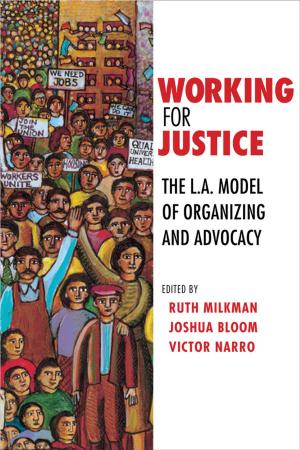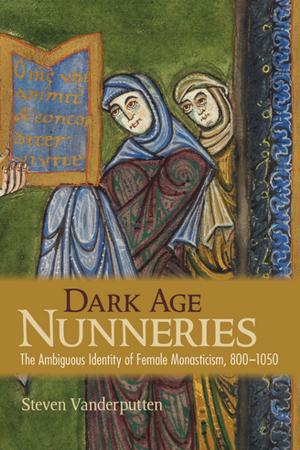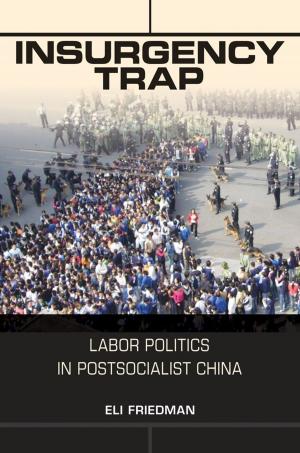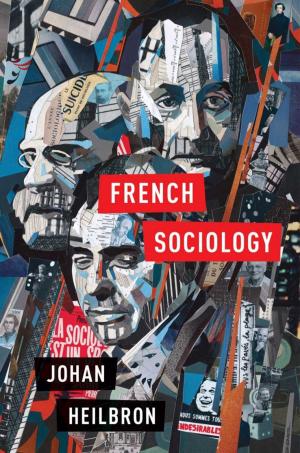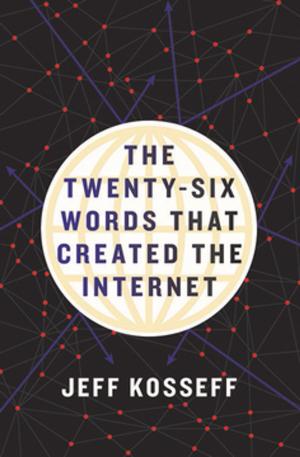Building the City of Spectacle
Mayor Richard M. Daley and the Remaking of Chicago
Nonfiction, Social & Cultural Studies, Social Science, Sociology, Urban, History, Americas, United States| Author: | Costas Spirou, Dennis R. Judd | ISBN: | 9781501706837 |
| Publisher: | Cornell University Press | Publication: | October 27, 2016 |
| Imprint: | Cornell University Press | Language: | English |
| Author: | Costas Spirou, Dennis R. Judd |
| ISBN: | 9781501706837 |
| Publisher: | Cornell University Press |
| Publication: | October 27, 2016 |
| Imprint: | Cornell University Press |
| Language: | English |
By the time he left office on May 16, 2011, Mayor Richard M. Daley had served six terms and more than twenty-two years at the helm of Chicago's City Hall, making him the longest serving mayor in the city’s history. Richard M. Daley was the son of the legendary machine boss, Mayor Richard J. Daley, who had presided over the city during the post–World War II urban crisis. Richard M. Daley led a period of economic restructuring after that difficult era by building a vibrant tourist economy. Costas Spirou and Dennis R. Judd focus on Richard M. Daley’s role in transforming Chicago’s economy and urban culture.The construction of the "city of spectacle" required that Daley deploy leadership and vision to remake Chicago’s image and physical infrastructure. He gained the resources and political power necessary for supporting an aggressive program of construction that focused on signature projects along the city’s lakefront, including especially Millennium Park, Navy Pier, the Museum Campus, Northerly Island, Soldier Field, and two major expansions of McCormick Place, the city’s convention center. During this period Daley also presided over major residential construction in the Loop and in the surrounding neighborhoods, devoted millions of dollars to beautification efforts across the city, and increased the number of summer festivals and events across Grant Park. As a result of all these initiatives, the number of tourists visiting Chicago skyrocketed during the Daley years.Daley has been harshly criticized in some quarters for building a tourist-oriented economy and infrastructure at the expense of other priorities. Daley left his successor, Rahm Emanuel, with serious issues involving a long-standing pattern of police malfeasance, underfunded and uneven schools, inadequate housing opportunities, and intractable budgetary crises. Nevertheless, Spirou and Judd conclude, because Daley helped transform Chicago into a leading global city with an exceptional urban culture, he also left a positive imprint on the city that will endure for decades to come.
By the time he left office on May 16, 2011, Mayor Richard M. Daley had served six terms and more than twenty-two years at the helm of Chicago's City Hall, making him the longest serving mayor in the city’s history. Richard M. Daley was the son of the legendary machine boss, Mayor Richard J. Daley, who had presided over the city during the post–World War II urban crisis. Richard M. Daley led a period of economic restructuring after that difficult era by building a vibrant tourist economy. Costas Spirou and Dennis R. Judd focus on Richard M. Daley’s role in transforming Chicago’s economy and urban culture.The construction of the "city of spectacle" required that Daley deploy leadership and vision to remake Chicago’s image and physical infrastructure. He gained the resources and political power necessary for supporting an aggressive program of construction that focused on signature projects along the city’s lakefront, including especially Millennium Park, Navy Pier, the Museum Campus, Northerly Island, Soldier Field, and two major expansions of McCormick Place, the city’s convention center. During this period Daley also presided over major residential construction in the Loop and in the surrounding neighborhoods, devoted millions of dollars to beautification efforts across the city, and increased the number of summer festivals and events across Grant Park. As a result of all these initiatives, the number of tourists visiting Chicago skyrocketed during the Daley years.Daley has been harshly criticized in some quarters for building a tourist-oriented economy and infrastructure at the expense of other priorities. Daley left his successor, Rahm Emanuel, with serious issues involving a long-standing pattern of police malfeasance, underfunded and uneven schools, inadequate housing opportunities, and intractable budgetary crises. Nevertheless, Spirou and Judd conclude, because Daley helped transform Chicago into a leading global city with an exceptional urban culture, he also left a positive imprint on the city that will endure for decades to come.


